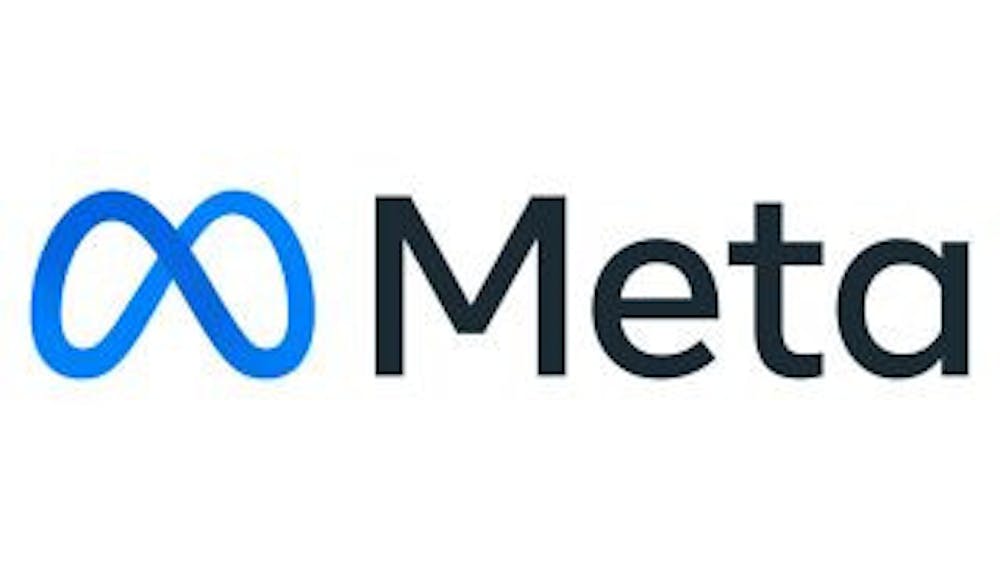In his visionary “Neuromancer,” William Gibson conceptualized “cyberspace” as an endless three-dimensional virtual zone that infinitely mimicked reality. Would it ever be possible for humans to create such a hallucinatory space? More importantly, is it even worth the price? To both these questions, Mark Zuckerberg and his team of executives in the formerly-called Facebook company gave the answer: yes.
Facebook disclosed its plan for the name change about two and a half weeks ago. On October 28, it was officially announced that Facebook, the mother company that owned Facebook, Instagram, WhatsApp, Oculus, and more, would be renamed as “Meta Platforms Inc.” The company’s logo would be changed from the iconic thumbs-up “Like” to a blue infinity symbol shaped like the letter “M.”
It is hard not to associate this untimely rebrand with an underlying intention to distract the public from Facebook’s recent public relations crisis, which was sparked by Frances Haugen’s release of the “Facebook Papers.” Haugen is a former Facebook Product Manager-turned-whistleblower who “became increasingly alarmed by the choices the company makes prioritizing their own profits over public safety and putting people's lives at risk.”
To do Facebook justice, the innermost reason for the rebrand traces back to at least August, when Zuckerberg put forth a future strategic emphasis on building the “metaverse” in an earnings call, according to The New Yorker.
Coined in the 1992 novel “Snow Crash,” “metaverse” is a shared, interactive virtual environment, in which humans can connect to one another. Why did Facebook decide on the name change? Simply put, the primary purpose of the name change is to reflect the company’s ambition of reaching into more dimensions of people’s lives than it already has — which is quite concerning, considering Facebook’s already devastating effects — widening social division, causing anxiety and so on.
While labeling the name change as solely an intentional diversion from Facebook’s bad publicity is not necessarily accurate, the rebranding and Facebook’s safety concerns are indeed interconnected. The massive funding of investment in the metaverse could have been, at least in part, used to enhance Facebook’s safety. Haugen said in her testimony to the US Senate Committee on Commerce, Science and Transportation, the company dedicated $10 billion to Metaverse while only giving the safety division $5 billion.
This strikingly unequal allocation of money, along with the new name “Meta,” belied Zuckerberg and his team’s unabashed ambition to expand the corporation. In fact, Meta planned to open 10,000 new job positions in the European Union to recruit talent for building the metaverse. Considering how much Facebook’s social media platform has factored into every aspect of modern life, imagine what this metaverse vision would hold for the future. “Our physical lives are already so saturated with Facebook and its other properties that the company must build new structures for the virtual iterations of our lives, and then dominate those as well in order to keep expanding,” wrote Kyle Chayka for The New Yorker.
Further, the concept of an all-penetrating world with virtual reality, augmented reality and mixed reality bodes an ominous tone to almost anyone who is familiar with scientific fiction works that illustrates similar existences, including but not limited to the aforementioned “Neuromancer,” “Snow Crash” and more recently, “Westworld” and “Upload.”
At a web summit in Lisbon, former Facebook investor Roger McNamee voiced his skepticism to BBC: "Facebook should not be allowed to create a dystopian metaverse," he said. “It's a bad idea and the fact we are all sitting and looking at this like it's normal should be alarming to everyone.”
At this point, is building the metaverse worth the dangers it entails? Do we have a consensus set of ethics for a virtual reality world? Admittedly, values evolve as the world changes, and, naturally, it is not expected to have every judgment set in stone before there is even the means to construct a “metaverse.” But when that metaverse eventually comes, and if it comes, should we allow a company that has such a questionable moral track record to take up the baton of shaping ethics in this new atmosphere?
Get The Chronicle straight to your inbox
Signup for our weekly newsletter. Cancel at any time.
Katherine Zhong is a Trinity junior and local arts editor of The Chronicle's 119th volume.

